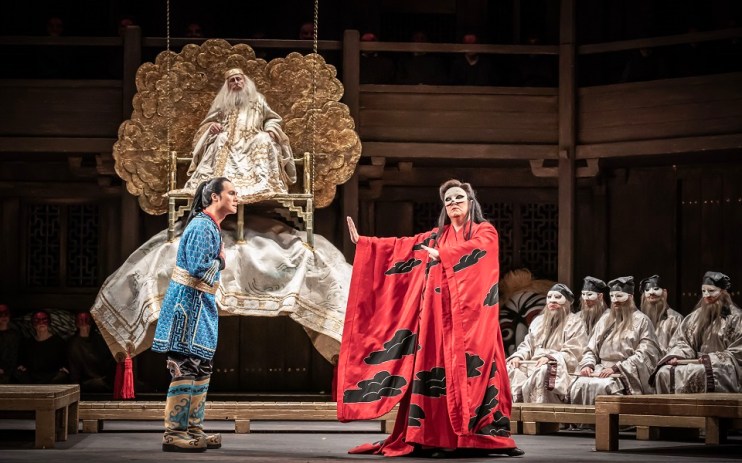Turandot at the ROH: Stunning production can’t mask a problematic opera

The operatic canon offers many examples of the spectacular being mingled with the problematic. In this respect, Puccini is a regular offender. Despite many of his operas representing the very pinnacle of classical music, there is no denying the blatant orientalism present in the heart-breaking Madam Butterfly. This even tarnishes his last opera, the magnificently dramatic Turandot; perhaps to the point of no return.
Set in ancient imperial China, icy princess Turandot refuses to take a husband unless he can correctly answer the three riddles she sets him. If just one question is answered incorrectly, they are ruthlessly executed. Calaf, the lost prince of Tartary, is the first man to answer them all correctly, but Turandot is still reluctant to accept him as her husband. Not wanting to force Turandot to marry him unwillingly, Calaf proposes that if she can guess his name by dawn he will voluntarily go to the executioner’s block.
Andrei Serban’s 1984 production is in its umpteenth revival, and even if it is undeniably traditional, there is no denying the passion present on stage. This production’s giant masks, coloured streamers, spectacular costumes and inherent drama have made it a returning audience favourite. Every glint of gold and flash of red adds to the drama of Puccini’s score, which builds to a crescendo of intensity.
The splendour on stage is held up by an exquisite cast. Yonghoon Lee is a compelling Calaf, with his trumpety tenor tugging at just the right heartstrings. Lee sings the famous Nessun Dorma aria with fierce resolve and seemingly endless emotional power. Anna Pirozzi as Turandot makes the audience shiver with her profoundly chilling soprano, and together the pair make for an impressive match. Masabane Cecilia Rangwanasha’s portrayal of the enslaved Liù, deserves a special mention. Soaring effortlessly to incredible heights, Rangwanasha’s voice was silky smooth and hauntingly beautiful all at once – she possesses show stealing qualities.
Antonio Pappano has waited until now to conduct his first Turandot, but his connection to the piece is undeniable. Fireworks were emanating from the pit, with red hot ferocity, anger and heartbreak flowing through every instrument. Pappano is unquestionably in his element.
It is unfortunate that such a stellar display cannot escape the very evident awkwardness it creates. Hiring white performers in non-white roles does the Royal Opera House few favours. Given the clear context of Serban’s production, the obvious objection lingers uncomfortably on stage, and becomes more awkward by the second. Perhaps a new Turandot should be brought to the fore, as this one feels like a past we are steadily leaving behind. One foot out the door, a final look may put it to rest.
